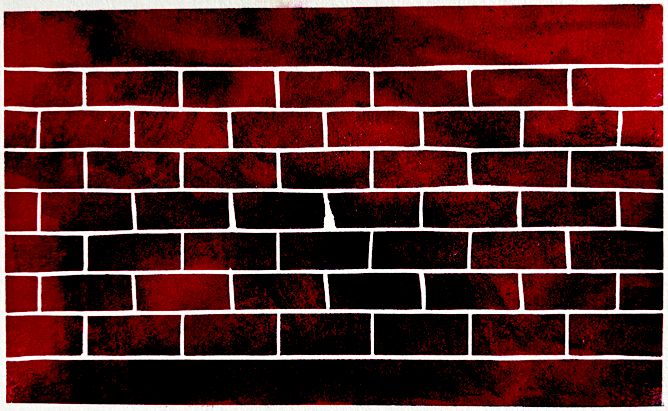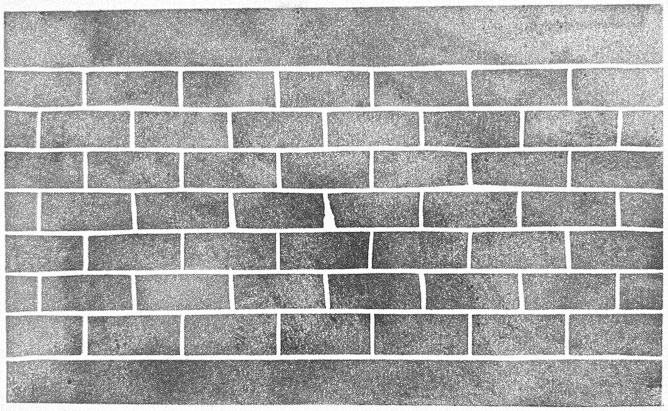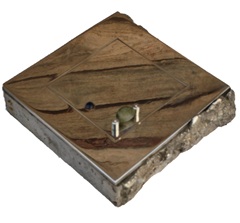This is a picture of a wall that has stood firm for over 200 years. It has weathered storms and heatwaves. It has been home to many insects, moss, and a little lichen.
It has done its job well.
I made this picture using lithographic printing. Using a sharp cutter, the lines were accurately carved from a humble piece of floor tile. Upon which some ink was spread and a downward force applied to transfer the image to a piece of wet paper.
This wall has served me well. It has served lots of people well that lived here in the past. However, I am sure your gaze has hit upon one thing. I need not point out what that is.
How many of us reject something or someone because of a tiny blemish. A tiny imperfection that makes very little difference to the utility of the item/person in question.
The neatness obsession. Neat lawns. Neat gardens. Trees planted unnaturally in neat lines. There is good reason for this. It serves a number of purposes but at the same time it is a shame that we insist on neatness and perfection everywhere.

Here is a further clue:
Explore
Desires, ego, ambitions sit on deeper drives.







